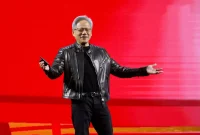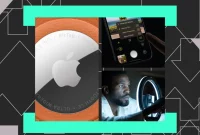OpenAI CEO Sam Altman Outlines Vision for AI in “The Gentle Singularity”
In a recently published essay titled “The Gentle Singularity,” Sam Altman, CEO of OpenAI, articulated his forward-looking perspective regarding the transformative impact of Artificial General Intelligence (AGI) on human existence over the next 15 years.
Altman’s Futuristic Perspective on AGI
Altman’s essay exemplifies his characteristic futurism, showcasing the vast potential of AGI while suggesting that its widespread adoption may still be several years away. Known for his thought-provoking writings, Altman often illustrates a future where AGI fundamentally reshapes our understanding of work, energy consumption, and societal structures. Additionally, his essays often provide insights into OpenAI’s ongoing projects and future initiatives.
Upcoming AI Advancements
In his recent essay, Altman indicated that by the year 2026, new AI systems capable of generating unique insights will likely emerge. Although this statement lacks specificity, it aligns with recent announcements from OpenAI executives, suggesting a concerted effort toward developing AI models that can produce innovative and helpful ideas.
Earlier this year, during the unveiling of OpenAI’s o3 and o4-mini models, co-founder and President Greg Brockman highlighted these AIs as groundbreaking, marking the first instance of machine-generated ideas being harnessed by scientists for practical applications.
A Competitive AI Landscape
It appears that OpenAI is not alone in this quest. Numerous competitors are also pivoting towards training AI models to assist researchers in forming new hypotheses and facilitating significant discoveries. For instance, in May, Google released a paper detailing AlphaEvolve, an AI tool reportedly adept at devising novel solutions to intricate mathematical challenges.
Similarly, FutureHouse, a startup supported by former Google CEO Eric Schmidt, claims to have developed an AI agent capable of making verifiable scientific discoveries. Additionally, Anthropic launched a research support program to further scientific inquiry using AI technologies.
If these advancements succeed, they could revolutionize essential scientific processes, potentially making substantial strides in sectors such as drug development, materials science, and other areas reliant on rigorous scientific exploration.
Historical Context of Altman’s Insights
Altman has previously hinted at OpenAI’s future directions in his blog posts. For example, in January, he predicted that 2025 would be the year of AI agents, shortly before his company released its initial trio of AI agents: Operator, Deep Research, and Codex.
However, enabling AI systems to produce genuinely novel insights presents more challenges than merely creating agentic systems. The broader scientific community remains somewhat cautious regarding the capacity of AI to yield authentically original insights.
Earlier this year, Thomas Wolf, Chief Science Officer at Hugging Face, expressed skepticism in an essay, stating that modern AI lacks the ability to formulate profound inquiries—an essential element in achieving scientific breakthroughs. Kenneth Stanley, a former OpenAI research lead, previously asserted that current AI models fall short in generating novel hypotheses.
The Future of AI and Scientific Research
Stanley now leads a team at Lila Sciences, a startup that secured $200 million in funding to develop an AI-driven laboratory focused on enhancing AI’s capability to formulate compelling hypotheses. He acknowledges that this is a particularly challenging issue, as it involves imparting a sense of creativity and intrigue to AI models.
While the feasibility of OpenAI developing an AI model that successfully generates novel insights remains uncertain, Altman’s essay undeniably reflects a familiar theme—a glimpse into the future path OpenAI aims to pursue.
As the conversation surrounding AI and its potential accelerates, the implications for various sectors are vast, and OpenAI’s initiatives will be closely monitored in the coming years.




